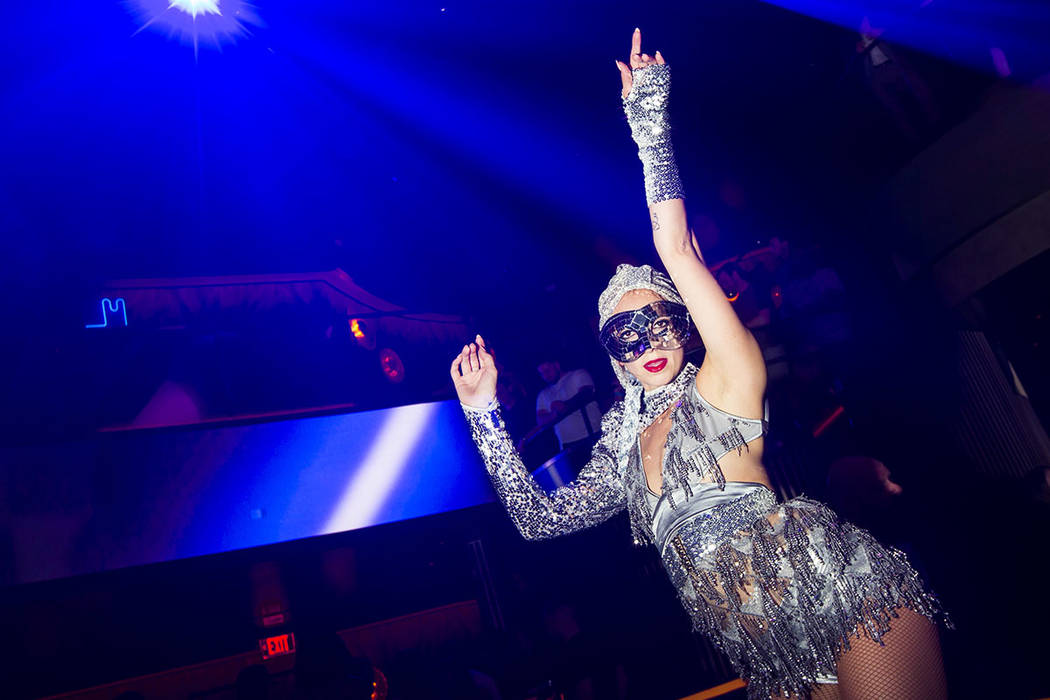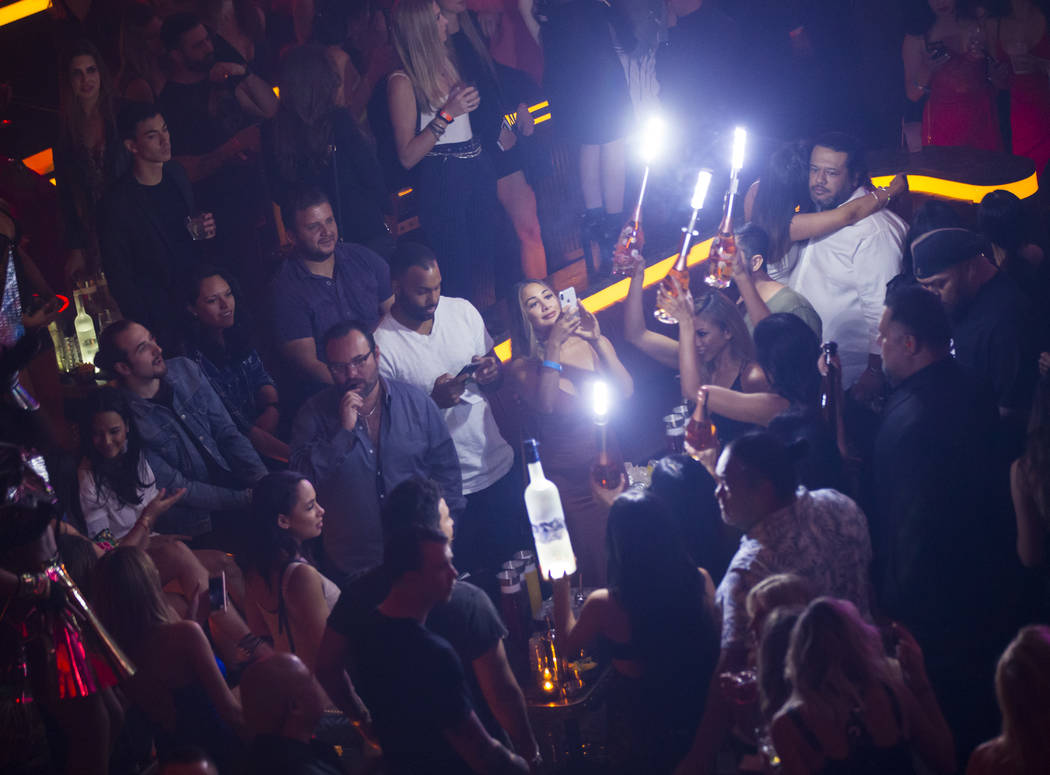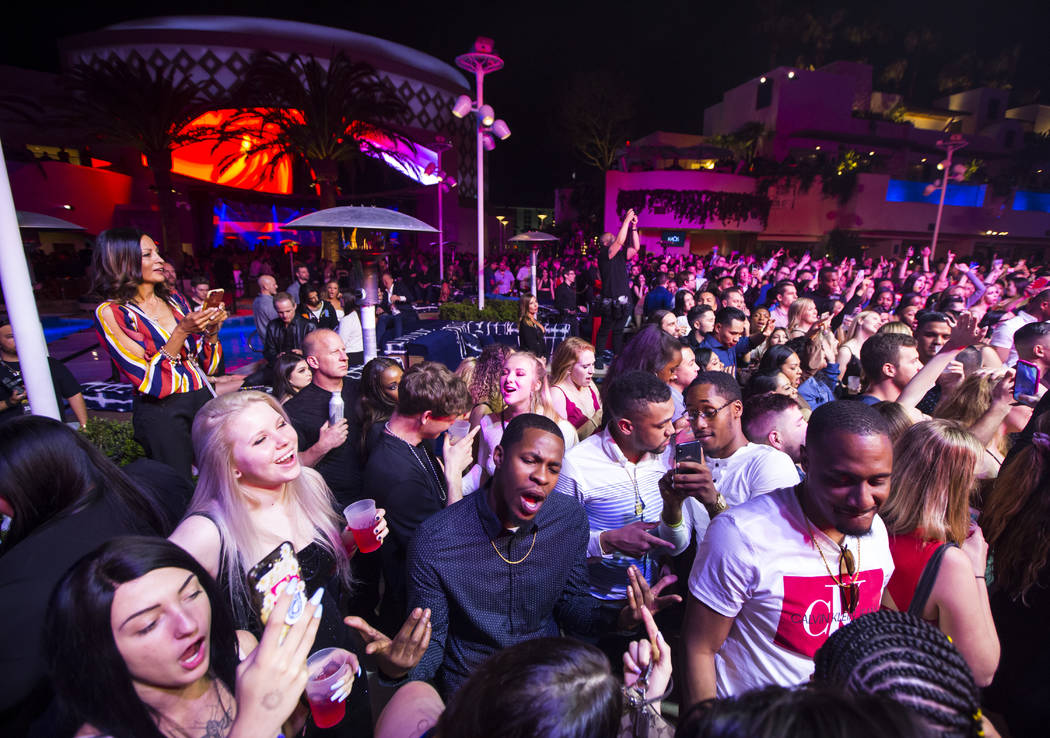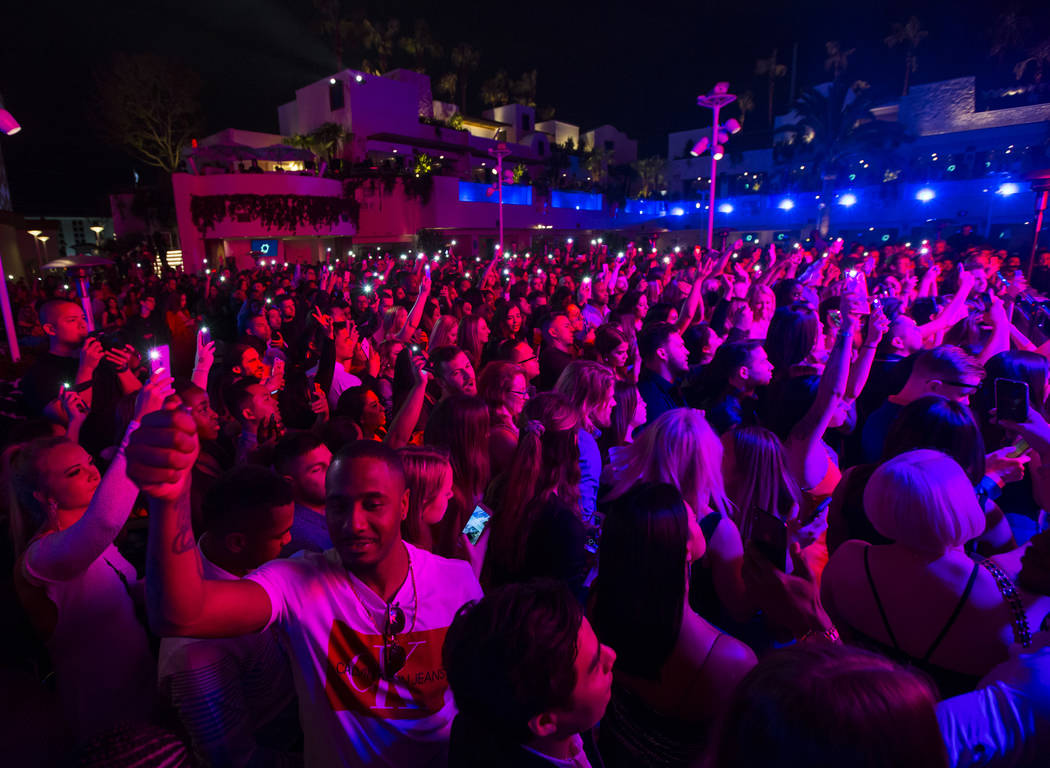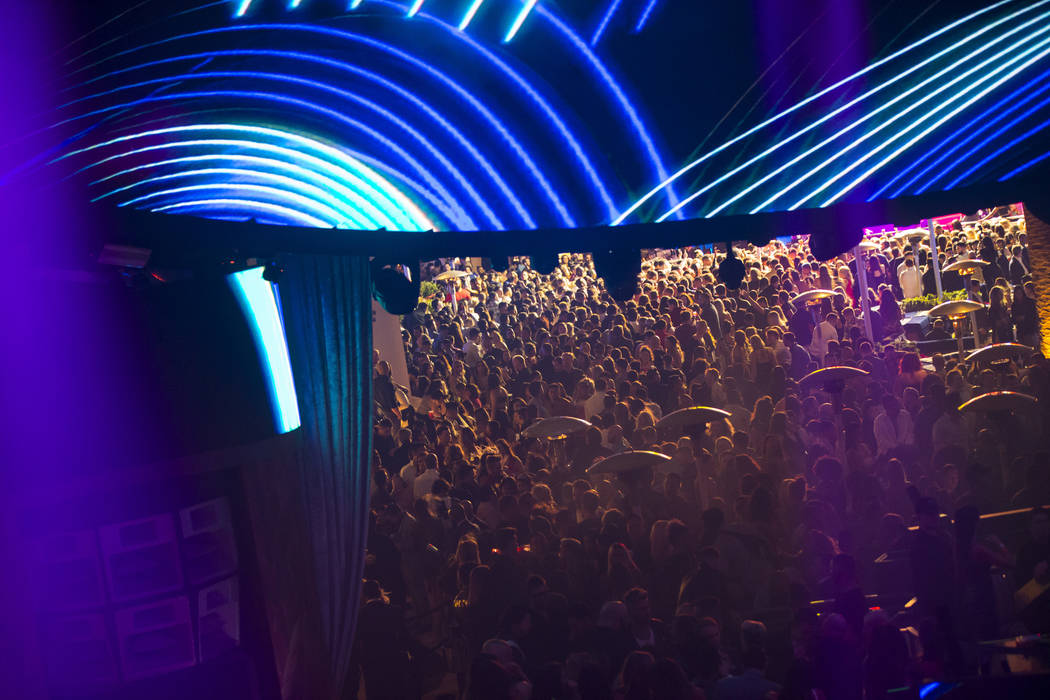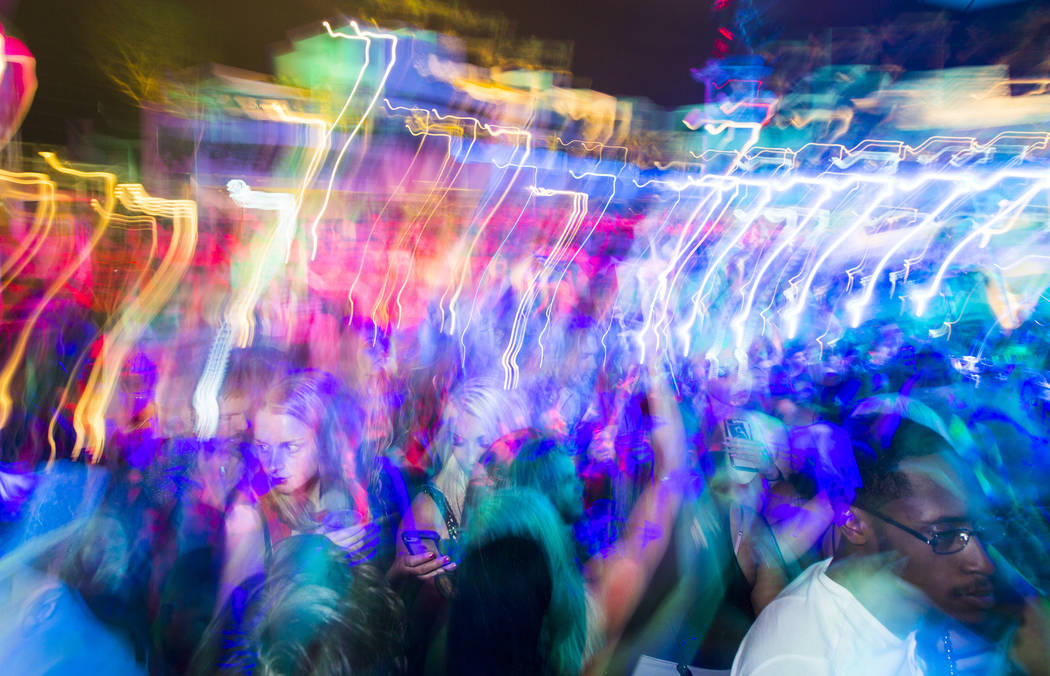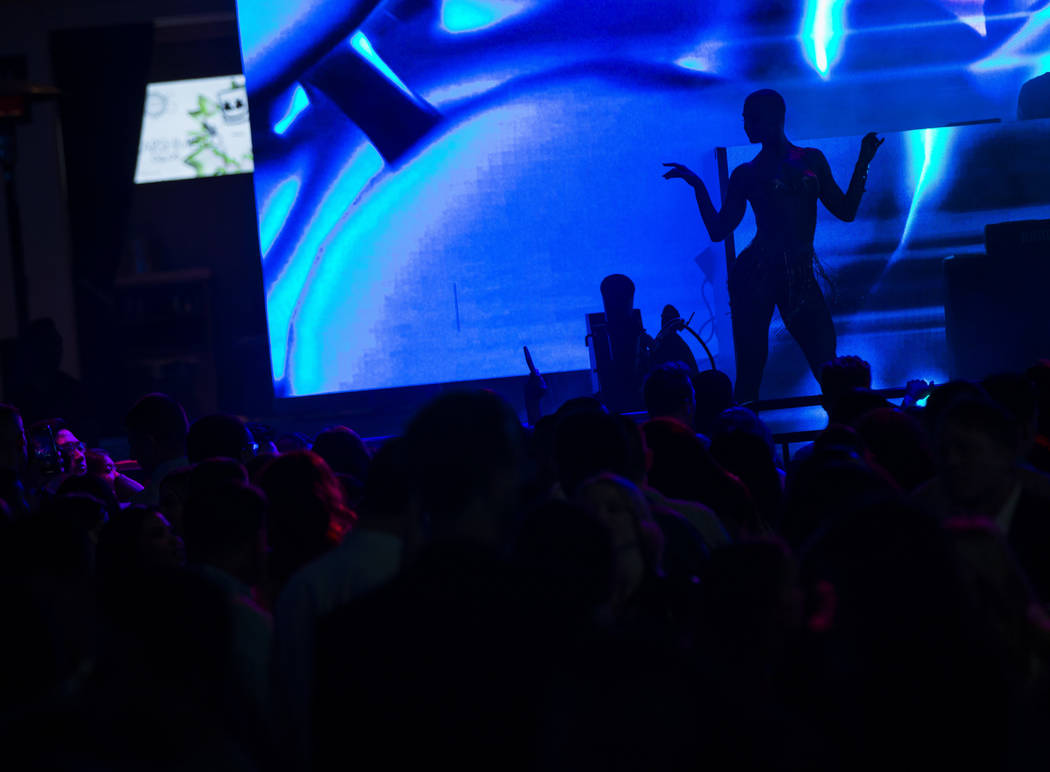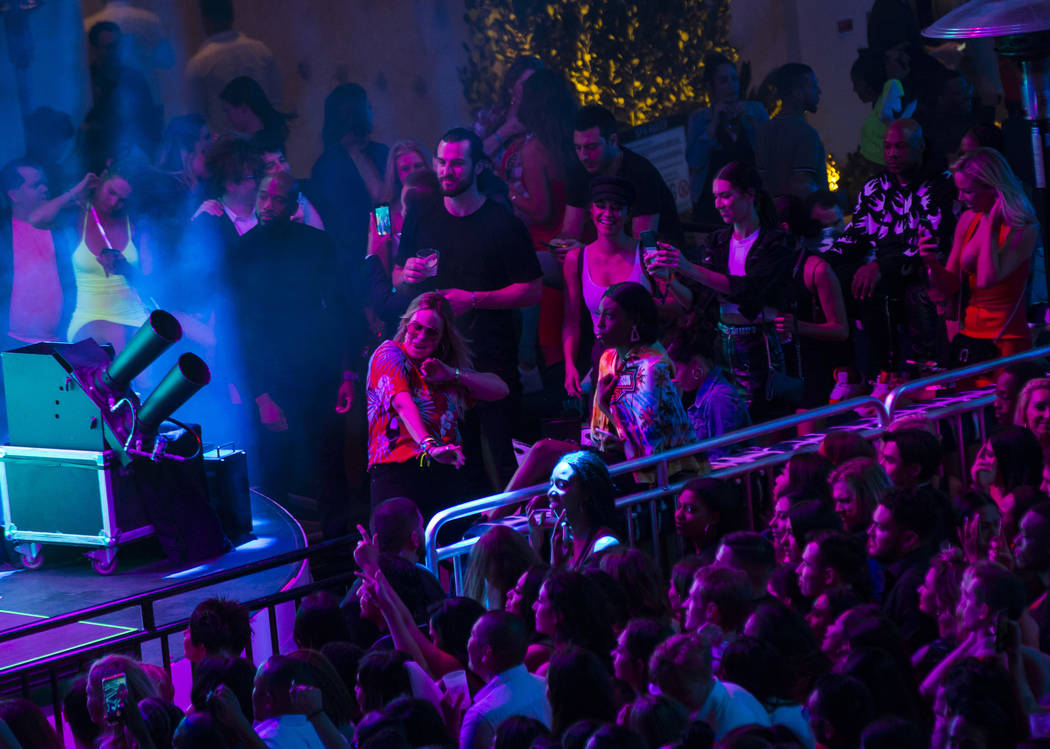Nightlife trends are shifting in Las Vegas
Las Vegas is known for many things: its iconic neon signs, endless rows of slot machines and its nightlife, to name a few.
The city has earned the moniker “nightclub capital of the world” to some, but experts in the nightlife industry say trends are changing, and the days of new mega-clubs opening every year are over. Instead, visitors are looking for more intimate experiences, with many shifting toward smaller lounges.
“Vegas has definitely hit the saturation point with nightclubs,” said Noah Tepperberg, co-founder of Tao Group. “A lot of what’s coming online seems to be smaller venues.”
Alternative experiences
According to a 2018 report from the Las Vegas Convention and Visitors Authority, bars and lounges are showing to be more popular than nightclubs in the valley. While 7 percent of respondents said they went to a hotel nightclub, 52 percent made a stop at a hotel bar or lounge.
Additionally, the number of visitors who said they’d visited a hotel nightclub with a cover dropped from 13 percent to 7 percent between 2017 and 2018.
“Nightlife has expanded. It’s not just the nightclubs anymore,” said Matthew Minichino, vice president of nightlife and daylife for Hard Rock International, at a Certified Commercial Investment Member luncheon on Wednesday. “They’re looking for more of these smaller, intimate concepts so that you can have more offerings and more diverse entertainment.”
He pointed to alternative venues like The Barbershop at the Cosmopolitan — a hybrid cocktail lounge and barbershop — and sports-related venues like Topgolf.

“It’s a lot more beneficial to look for the alternative forms of nightlife concepts. The smaller venues, the sports entertainment-type venues,” Minichino said. “Those trends, I think, obviously, are going to keep growing.”
Much of Vegas’ clientele is looking to get “value” out of their experiences, Minichino said— something that’s harder to find when they’re crammed in a nightclub after spending $50 or more just to walk in.
“That very uncomfortable experience is not what the customer base wants anymore,” he said. “They feel like they have to get a real, true experience for their dollar.”
An oversaturated market
Minichino said part of the problem is oversaturation in the nightlife market.
It’s a “bit of a broken model,” he said. “You’re talking about four, five mega-clubs in these properties around town. … You realize that some of these properties can’t sustain how much money they cost.”
Jeff Victor, vice president of operations at the D Las Vegas, said Circa Resort and Casino— set to open downtown in December 2020 — has no plans to put in a nightclub.
“There’s other things we think are more interesting,” he said.
Ryan Dahlstrom, president of the Nightclub Hall of Fame, believes new nightclubs are no longer a good investment in Las Vegas. It’s a trend he’s seeing across the nation; nightclubs are simply too expensive to build and too expensive to operate, he said.
“Even us as consultants have had to adapt,” he said. “Instead of going out and helping people build nightclubs, it’s restaurants and bars with nightlife elements. … You don’t have nightclubs opening up like you did six years ago.”
Tepperberg said Tao Group has been holding back on opening new clubs as well, but he doesn’t believe tourists are discounting these venues just yet.
“The big venues are still doing really well,” he said. Smaller venues aren’t “replacing nightclubs. They’re just alternatives.”
Dayclubs
Oliver Porter, the director of marketing for VIP services for Daylight Beach Club and The LIGHT Vegas, said the era of mega-clubs has passed; now, people are looking for more of a balance with their Las Vegas nightlife experiences.
Pool clubs are a perfect example, he said.
“It’s not all the flashing lights and just the loud music, because we’re outside,” he said. “The pool lets people socialize, do a bit of drinking, do a bit of eating, do a bit of partying. A nightclub can’t provide that environment.”
Victor agreed.
“There’s one business that’s not saturated, and that’s pools,” he said. “That’s especially true downtown.”
Contact Bailey Schulz at bschulz@reviewjournal.com or 702-383-0233. Follow @bailey_schulz on Twitter.



